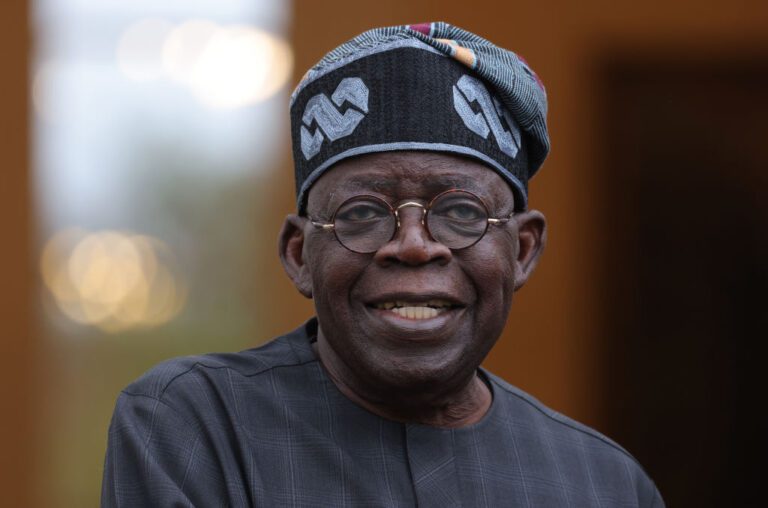The African Union Commission (AUC) has added its opinion on religious freedom in Nigeria, expressing concern over allegations that President Bola Tinubu’s government is complicit in the killing of Christians in northern Nigeria.
“The Committee notes with concern recent statements by the United States alleging that the Nigerian government is complicit in targeted killings of Christians and threats of military action,” the AUC said in a press statement.
The commission, the administrative and executive arm of the African Union, defended Nigeria’s “sovereign right to manage its internal affairs, including security, religious freedom and human rights, in line with its constitution and international obligations.”
It added: “Any external engagement must respect Nigeria’s sovereignty, territorial integrity and unity.”
The African organization, which represents 55 African countries, said it firmly rejects any narrative that weaponizes religion or oversimplifies security challenges.
“Confusing all forms of violence with a narrative targeting a single religion can impede effective solutions and destabilize communities,” the commission said.
The AU’s comments follow a statement from the US government regarding religious freedom in the West African state. US President Donald Trump has threatened to cut aid and threaten to attack Islamic extremist groups targeting Christians in the country.
With support from Secretary of Defense Pete Hegseth, the US government said it was ready to launch a military offensive to completely eliminate terrorists in Nigeria.
Nigeria rejects claims of religious persecution
Over the past week, there have been many reactions to the U.S. statement on the persecution of Christians in Nigeria and the subsequent U.S. response.
President Tinubu said Nigeria faces serious security challenges and the Nigerian government is committed to eliminating terrorists in the country. Tinubu said in a statement on November 7 that the country has experienced terrorism for the past 20 years and it will not stop until the problem is resolved.
“We will resolutely defeat terrorism and win this battle. Security is non-negotiable and we will never compromise on this principle. With unwavering courage and a firm commitment to the rule of law, we will prevail.” “We are deeply grateful to the brave men and women of our military and intelligence services, regardless of tribe or religion, who unite in purpose, fearlessly serve, fight together, and sometimes pay the ultimate price. Your dedication is our strength in the fight against terrorism.”
Nigeria’s Foreign Minister Yusuf Tugaa has said there can be no persecution of Christians at the hands of the government. Local media reported that Taggar disagreed with Trump’s claims that the Nigerian government is encouraging the persecution of Christians.
“There is no religious persecution that the Nigerian government at any level, whether federal, regional or local, can support in any way. It is impossible,” Tager said.
The Minister of Information and National Orientation, Alhaji Mohammed Idris, expressed similar views on the issue. He suggested that the country was not facing a problem of persecution of Christians, but a problem of terrorism.
Mr. Idris further said that over the past two years, terrorist activities have decreased and the country is winning the war against terrorism.
Festus Keyamo, Nigeria’s Minister of Aviation and Aerospace Development, wrote an open letter to President Trump, saying that Nigeria was facing a terrorist-related incident, not a religious one. In his open letter, Keyamo said he was appointed by the president even though he is a Christian, and that there are many more Christians in various positions in the Nigerian government.
“In fact, most of the security chiefs appointed by him are Christians and it is inconceivable that they are complicit in the killing of fellow Christians in Nigeria,” Keyamo added. “Nigerian President Bola Ahmed Tinubu is a Muslim, but his wife is a ‘moderate’ known for being the pastor of Nigeria’s largest Pentecostal church, and most of his children are Christians.”
He maintained that all leaders, including opposition parties, agreed that there was no religious persecution in Nigeria.
Keyamo appealed to President Trump to support the country in its fight against terrorist-related activities.
“We’re asking for cooperation,” he said. “We call for a frank and open dialogue with your government at this time. We ask you to take this opportunity to expand your sources of information so that we can get a balanced view of what is happening in Nigeria.”
His sentiments were echoed by the AU’s view that the United States can engage with Nigeria through diplomatic dialogue, intelligence sharing, and capacity-building partnerships, while respecting Nigeria’s sovereignty, rather than relying on threats of unilateral military intervention.
